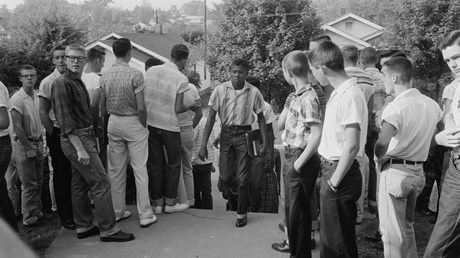How our accomodation of sin found us out in Charlottesville.

The tragic events in Charlottesville have captivated the attention of the nation, plunging us, yet again, into another period of deep soul-searching over our anguished racial history. President Donald Trump drew criticism from both sides of the aisle for his reluctance to condemn white nationalism specifically in his initial remarks.
As a scholar of political rhetoric, I understand, yet strongly disagree with Trump’s strategy in refusing to condemn white nationalism specifically. A vocal part of his base aligns with this philosophy, leaving him little incentive to risk alienating them. When former Klansman David Duke endorsed Trump during the campaign, the candidate expressed similar hesitancy in distancing himself from white nationalism.
Trump deserves strong criticism for his failure to specifically and clearly condemn white nationalism. The lure of power and votes do not justify his silence. Yet, to criticize an unpopular president is easy. Perhaps the harder, more difficult task we face in the wake of Charlottesville is to consider how we as citizens and Christians engage in a similar type of silence on a regular basis. Many of us mobilize in defense of ideals of equality every time an incident like Charlottesville occurs but quickly retreat to our comfort zones when public attention dies down. Daily battles for equality in church, education, employment, and the criminal justice system are much harder to maintain.
Trump’s silence on white supremacy was not an aberration but a cultural norm. Our disgust with his statement threatens to blind us to the ways in which the American imagination has consistently made room for the ideas of white supremacy to exist alongside core values like freedom, justice, and equality. …
Source: Christianity Today Most Read